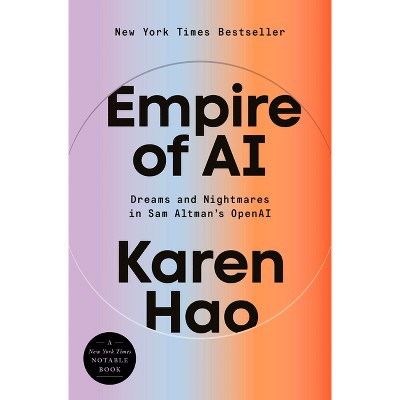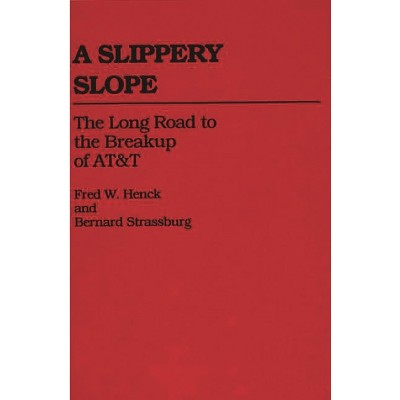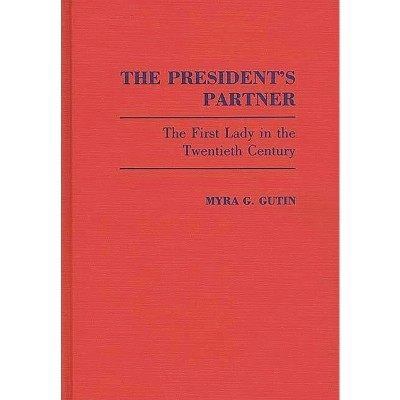Sponsored

Lightning Wires - (Contributions in Asian Studies) by Erik Baark (Hardcover)
In Stock
Sponsored
About this item
Highlights
- Baark examines the transfer of telegraph technology to China in the late nineteenth century.
- About the Author: ERIK BAARK is Associate Professor, Department of Technology and Social Sciences, Technical University of Denmark.
- 240 Pages
- Technology, Telecommunications
- Series Name: Contributions in Asian Studies
Description
About the Book
Baark examines the transfer of telegraph technology to China in the late nineteenth century. He shows how the initial Chinese rejection of the telegraph as an inconvenient technology contributed to violent conflicts between foreigners and the Chinese, but that this resistence gradually gave way to an assimilation of the telegraph into Chinese society.
The transfer and assimilation of advanced technology has been an important challenge for China's modernization for more than a century. Baark examines some of the dilemmas faced by Chinese modernizers of the yangwu (Western affairs) movement from the 1860s to the 1890s. Telegraph technology emerged in the West on the basis of scientific discoveries in electricity in the early nineteenth century, and was greeted with enthusiasm by governments and the public alike.
The Chinese attitudes to the telegraph, however, were informed by entirely different political and cultural priorities. Baark examines the tensions which existed between the Chinese and the foreign companies seeking to extend telegraph technology to East Asian cities, and he shows how the domestic network was shaped by indigenous social and cultural forces. This book will be of considerable interest to historians of modern China, technology, and economic development.
Book Synopsis
Baark examines the transfer of telegraph technology to China in the late nineteenth century. He shows how the initial Chinese rejection of the telegraph as an inconvenient technology contributed to violent conflicts between foreigners and the Chinese, but that this resistence gradually gave way to an assimilation of the telegraph into Chinese society.
The transfer and assimilation of advanced technology has been an important challenge for China's modernization for more than a century. Baark examines some of the dilemmas faced by Chinese modernizers of the yangwu (Western affairs) movement from the 1860s to the 1890s. Telegraph technology emerged in the West on the basis of scientific discoveries in electricity in the early nineteenth century, and was greeted with enthusiasm by governments and the public alike. The Chinese attitudes to the telegraph, however, were informed by entirely different political and cultural priorities. Baark examines the tensions which existed between the Chinese and the foreign companies seeking to extend telegraph technology to East Asian cities, and he shows how the domestic network was shaped by indigenous social and cultural forces. This book will be of considerable interest to historians of modern China, technology, and economic development.Review Quotes
?[T]his is an important example of a modern scholarly analysis of the innovation of telegraphy into what was then a developing nation.?-Communication Booknotes Quarterly~
?Baark provides a well-researched account of the initial resistance to and eventual adoption of the telegraph in China between the 1860s and the 1880s....Baark's book provides a valuable account of the early stages of a process of technology transfer and infrastructure development that began under the Qing and is now transforming China more profoundly than even Li Hongzhang could have imagined.?-China Review International
?Baark's capacity for entering into the spirit of the past is sufficiently reflected for the reader to acquire a solid basis for understanding the China of today.?-ACTA Orientalia, Vol 59, 1999
?Erik Baark's work is a welcome and important contribution to the sparse international historical literature dealing with the transfer of Western technology to the Third World in the nineteenth century....He handles this material critically, expertly and with sensitivity to detail.?-Scandinavian Economic History Review
?His objective is to illuminate the process of technology transfer and acceptance from the perspective of both Chinese and Western contemporaries. He succeeds well in this task, which requires penetrating through notions of cultural superiority, linear progress and the Chinese view of history as cyclic....All in all, this is a very valuable, thoroughly researched study with many aspects that invite further cross-cultural study.?-Technology and Culture
"ÝT¨his is an important example of a modern scholarly analysis of the innovation of telegraphy into what was then a developing nation."-Communication Booknotes Quarterly~
"[T]his is an important example of a modern scholarly analysis of the innovation of telegraphy into what was then a developing nation."-Communication Booknotes Quarterly~
"Baark provides a well-researched account of the initial resistance to and eventual adoption of the telegraph in China between the 1860s and the 1880s....Baark's book provides a valuable account of the early stages of a process of technology transfer and infrastructure development that began under the Qing and is now transforming China more profoundly than even Li Hongzhang could have imagined."-China Review International
"Baark's capacity for entering into the spirit of the past is sufficiently reflected for the reader to acquire a solid basis for understanding the China of today."-ACTA Orientalia, Vol 59, 1999
"Erik Baark's work is a welcome and important contribution to the sparse international historical literature dealing with the transfer of Western technology to the Third World in the nineteenth century....He handles this material critically, expertly and with sensitivity to detail."-Scandinavian Economic History Review
"His objective is to illuminate the process of technology transfer and acceptance from the perspective of both Chinese and Western contemporaries. He succeeds well in this task, which requires penetrating through notions of cultural superiority, linear progress and the Chinese view of history as cyclic....All in all, this is a very valuable, thoroughly researched study with many aspects that invite further cross-cultural study."-Technology and Culture
About the Author
ERIK BAARK is Associate Professor, Department of Technology and Social Sciences, Technical University of Denmark. He has published extensively on science and technology policy and technological innovation and cultural change in Asia, Africa, and Europe. He has also worked as a consultant for international organizations such as the World Bank and UNDP.Shipping details
Return details
Frequently bought together


Trending Computers & Technology Books















